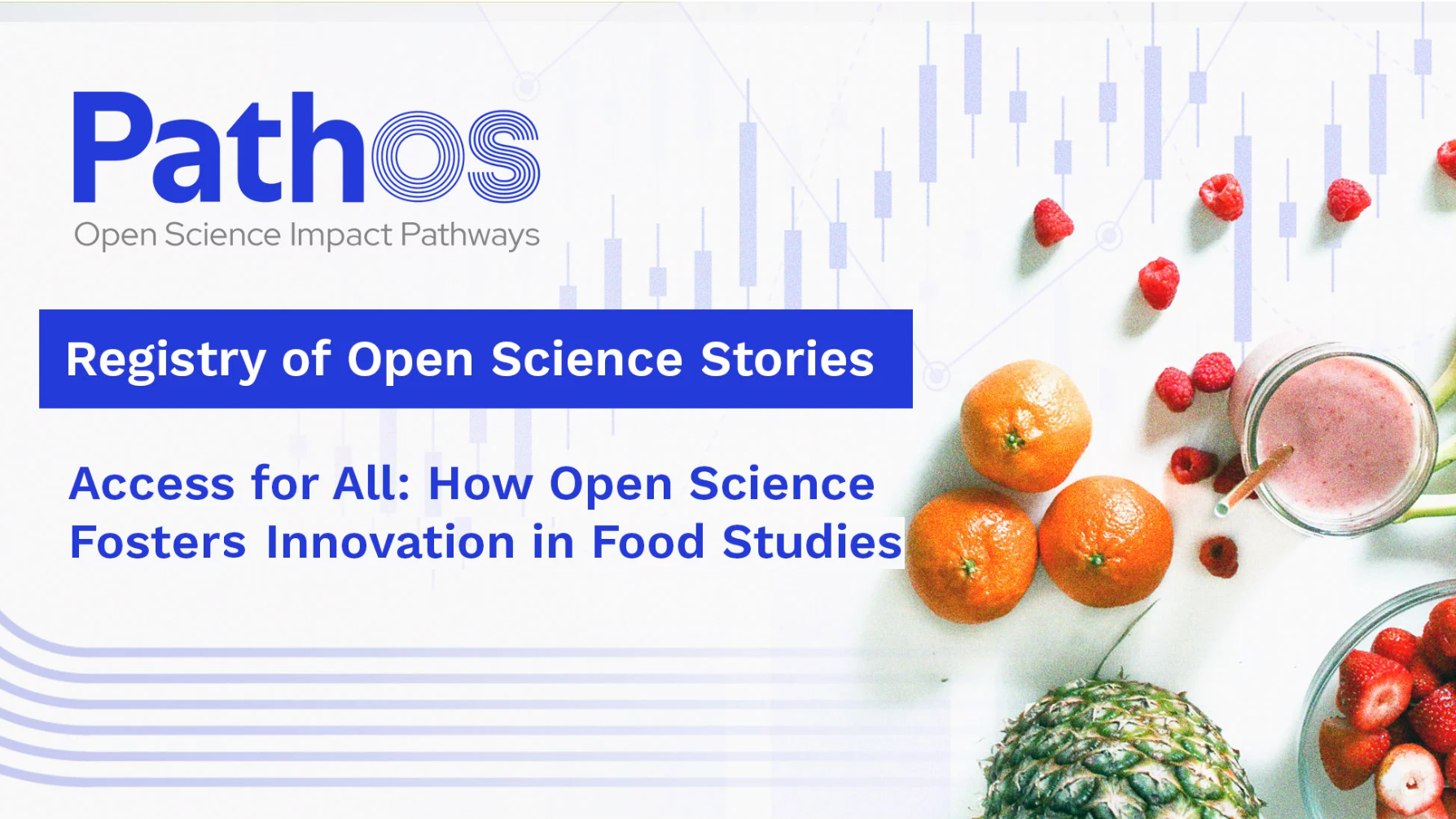Access for All: How Open Science Fosters Innovation in Food Studies

Within PathOS we are collecting stories on how Open Science (Open Access to publications, Open/FAIR data and software, collaborations with citizens) has made a positive or negative impact. Our ultimate aim is to highlight stories of Open Science practices and how these are linked to impactful outcomes. In this way, we hope to foster a learning experience and to inspire others to follow. Join us and read the first Open Science stories!
Could you briefly introduce yourself and what your Open Science story is about, including its time (e.g. year range) and location?
My name is Márcio Carocho, I’m a researcher at the Centro de Investigação de Montanha of the Instituto Politécnico de Bragança (IPB), working on food science and technology, and also on chemistry of natural products. My Open Science story is on the importance that Open Access publishing has had in my research career, and it spans over 10 years. Another Open Access situation I should point-out is the freely available manuscripts and other scientific outputs of the researchers in my institution, as all are deposited in our public repository (Open library – bibliotecadigital.ipb.pt).

The lesson to take from this is that, when developing transferable and/or applied research, Open Access is always the best option, especially if non-scientific audiences could potentially be interested in the developed research or technology.
What was the context or background in which this Open Science practice was used? What were the goals or expected outcomes?
As a researcher, most of my work is published in scientific journals, which nowadays, support Open Access. Still, at the beginning of my career, very few journals were or had Open Access. Thus, as most of my research is transferable to the industry, considered as applied science, there is a need to show previous research when seeking industry partners for research projects. Our Open Access publications allowed sending journal links to the industry as proof of expertise on several subjects. Sending a link was much better received by the industry or retail enterprises, than sending a pdf of previously published manuscripts. At the time, the expected outcomes were an acknowledgement from the partners of our expertise and knowledge in certain domains of science.
Were there any quantifiable outcomes or measurable successes linked to this practice? What metrics or indicators were used to evaluate these outcomes, if any?
The most valuable metric I can point out is the higher reach (number of downloads or reads) that Open Access manuscripts have when compared to subscription ones. Also, as one of the manuscripts I published was a preliminary study for a technology that was leased to a start-up company, this made non-scientific audiences very curious. Thus, having an Open Access-link to a scientific manuscript available to all types of audiences helped the overall success of the company, as well as for our research.
What impacts, both expected and unexpected, did this practice have? Were there any surprising developments or results?
One surprising outcome was the fact that several investors and non-scientific audiences that read the Open Access manuscripts I published related to the technology, and inquired the company and my research team about some doubts they had in the manuscript. With a subscription manuscript this would not happen, as they would never have access to the information.
What challenges were associated with this practice, from your perspective? What lessons can be drawn from its implementation?
I did not find any challenges or difficulties. The lesson to take from this is that, when developing transferable and/or applied research, Open Access is always the best option, especially if non-scientific audiences could potentially be interested in the developed research or technology.
How do you perceive this practice's influence on the wider scientific community or society? Has it affected your own views or approaches to research?
I believe that Open Science is crucial for the scientific community, as subscriptions to scientific research is becoming disperse, and in most cases not all scientists can access all subscriptions, which fosters piracy. In terms of society, opening science is always the correct option, especially to reduce illiteracy.
Based on your experience or observation, would you recommend this Open Science practice to others? Why or why not?
I definitely would, as this has implication for science to reach its ultimate goal, to improve society. Furthermore, Open Access helps democratize science, making it available to all, not only to elites.
Stay tuned with PathOS updates
Follow us on LinkedIn & Twitter!
Do you want to share your own OS story? Join us and share your story here.